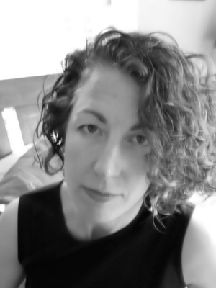Responsibilities at the Trauma Foundation
I joined fellow librarian Bill Holland in the amphitheatre which housed the Injury & Violence Prevention Library in 1992 right after I got my MLIS in Library & Information Science at UC Berkeley, and never looked back. There was so much going on at that time that it is hard to pick out specific tasks. I directed the library, but it wasn’t a usual library, and we learned by reading, asking, and doing. Together, we built the collection and created a unique glossary and classification system for it. We answered calls from people with reference questions. We created fact sheets, FAQs, and bibliographies, and translated complex epidemiological and professional data and research into information that people could use on the ground to make change. We also benefited from the generosity of library volunteer and survivor advocate Jimmy Brennan. When we developed the Pacific Center for Violence Prevention, the network of users got enormously wider and more diverse, and the library staff increased. My tenure coincided with the burgeoning of the internet, so with Peggy Skaj and Lynne Olivier, we planned and designed the Trauma Foundation’s suite of web sites and trained community members and youth to navigate its rough and tumble seas. We created the architecture behind the suite of web pages, learned html, wrote and edited articles for the sites and for professional journals. It was a fascinating experience.
Liked most about the Trauma Foundation
I will mention three things. Firstly, work was meaningful. We tackled
social problems in a politically savvy way, and concrete good came of what
we did. That was important to me.
Secondly, I loved the people, both inside and
outside the Trauma Foundation. Inside, we worked as a team. We did have an
org chart on paper, but day-to-day, everyone contributed. We also teamed with
wonderful people, like Lori Dorfman and the Berkeley
Media Studies Group, and Lorna Hawkins with Drive-By
Agony, and even had an international effort, with folks like Philip Alpers
and Gunpolicy.org. I still get pleasure
hearing Anita Johnson on Hard Knock Radio (KPFA).
When I knew her, she was a trainee at Youth Radio and tackling important issues
(as she does still) around guns, youth violence and the prison industrial complex.
Thirdly but hardly last, we were always encouraged
to stretch our capabilities. When problems arose, we got together to solve
them - using the staff we had. Unlike big corporations with strict rules about
what one can and can’t do, we were expected to manage our areas using our own
skills and creativity. And so we did.
Learnings still useful
I don’t think I would have pursued a doctorate without working first at
the Trauma Foundation. My long-term interest is in language and literature/poetry
and how it interacts with class, culture and race, but before my experience
at the TF, I did not feel equipped with the tools to pursue that in a sophisticated
fashion. At the Trauma Foundation, we were encouraged to problem solve,
to gain new competencies. I knew nothing about the subject of injury and
violence prevention when I came, but I started to read professional journals
and learned on the fly. In epidemiological studies, for example, I saw
how data were sought, acquired, analyzed, and discussed. This equipped
me with skills for understanding how a subject is put together, and enabled
me to examine how political and social problems behave, how systems emerge,
how systemic interventions are formulated and how one might advocate for
something different. After a while, when I was asked to write articles
for professional journals, I realized I could and I enjoyed it.
Actually, the Violence
Prevention Initiative was very important for me. It brought me together
with people from very different backgrounds, cultures, classes, languages.
I remember sitting there and the Talking Stick was coming my way, and I wanted
to disappear but didn’t. This community pushed me emotionally and
culturally, and it was good for me.
Now
After I left the Trauma Foundation, I started a doctoral program in the
Literature Department at UC
Santa Cruz, and got my PhD in 2009. Right now, among other things,
I am revising my dissertation into a book, entitled: This Side of a
Human Future: Poetry Wars and Imagined Communities in the San Francisco
Bay Area - 1975-1990. I do some temporary reference work at the Main
branch of the San Francisco Public Library, and will continue teaching “Language
and Thinking” at the summer
session at Bard College back east. Next Fall I will also teach at the San
Francisco Art Institute. I interview writers, review poetry, and other
work that catches my eye on my blog.
Clay, my partner, helps to make all of this happen
as painlessly as possible, and our daughter Alex thrives. She is fluent in
Spanish, continues to study classical
ballet, and enters high school in the fall.
Contact
Replace "at" with "@" - we wish to thwart the spammers!
Email address:robinjtm at earthlink.net
6/21/10
